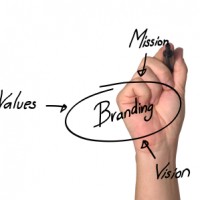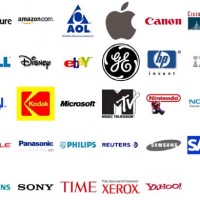
Building Your Brand – Gaining Awareness
Brand awareness is a critical piece of the business building puzzle. Potential customers need to know who you are, what your business does and, perhaps most importantly, why you are the better choice for their needs. If what people are thinking and saying about your business isn’t a good description of why it’s special, you could have a real problem. This article, the second in a series about branding, focuses on creating strong, memorable consumer perceptions and beliefs about your product or service.
Developing brand awareness is a process that starts with an empty slate. No one knows who you are or what your company does. If they see you in a list of similar companies or find your product on the shelf, people have no idea why they should choose you over your competition. It takes a lot of very hard work to sell your product or services. In order to make a sale, you have to beg, give a discount or give an incentive.
Obviously one of your biggest marketing issues is finding a way to stand out and be remembered. Plus, you have to give consumers a reason to purchase your product or buy your service. So you start shouting your name and selling message from the highest rooftop or plaster it all over the internet and build up brand name recognition, but that’s not all there is to awareness. It does little good to have a product that everyone remembers but no one thinks they need. No matter how many times people hear what you have to say, it doesn’t matter unless they believe it, remember it and buy it.
The truth is, your branding is not about what you say, it’s about what other people say. What consumers think when they see your product on a shelf or find your ad listing can make or break your business. The only message that really counts is the one that comes to their minds on an unprompted basis.
In the first article in this series on branding, we laid out the five stages a product or company goes through to create a strong and powerful brand persona. Brand awareness is the second stage and, once established, it must be reinforced by everything you do. Some brands are known by color (Coca Cola red), others by a design or logo (the Nike swoosh) and still others by an iconic sound or phrase (you’ve got mail). Even a person can come to stand for your brand, just as Steve Jobs wearing a black turtleneck did for Apple.
It’s clear that building meaningful brand awareness is hard work and takes a great deal of time and effort, but it must be done. Once you’ve established a great reputation you have to protect it and keep it. Everything that gets said about your company must reinforce the good things for which it is known. You must consistently deliver on the thing that makes you different. Good associations can be lost in an instant. A friendly brand with bad customer service is no longer friendly, it’s a nightmare. A company known for high-quality products that rushes something to market without finding and fixing all the bugs has scarred its reputation badly.


 16. Jan, 2012
16. Jan, 2012 


